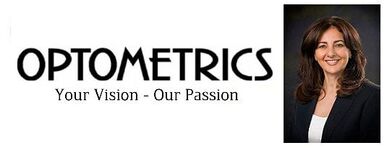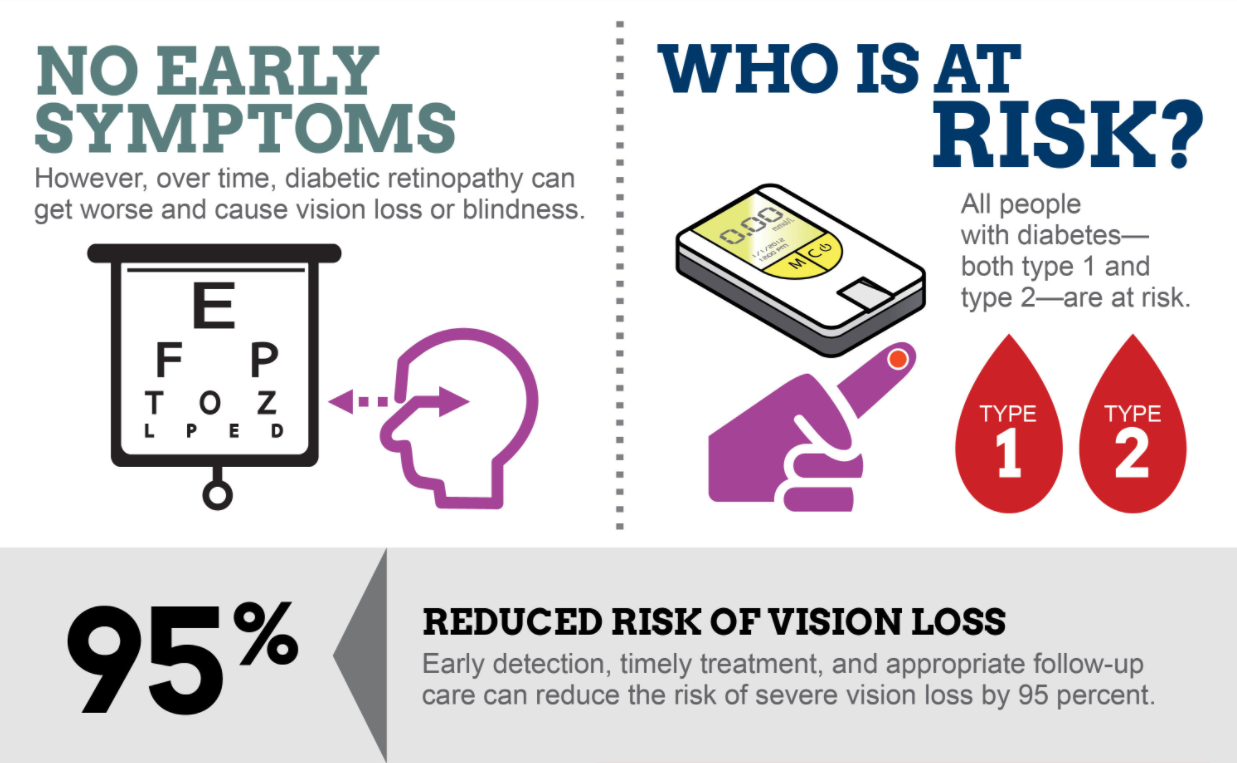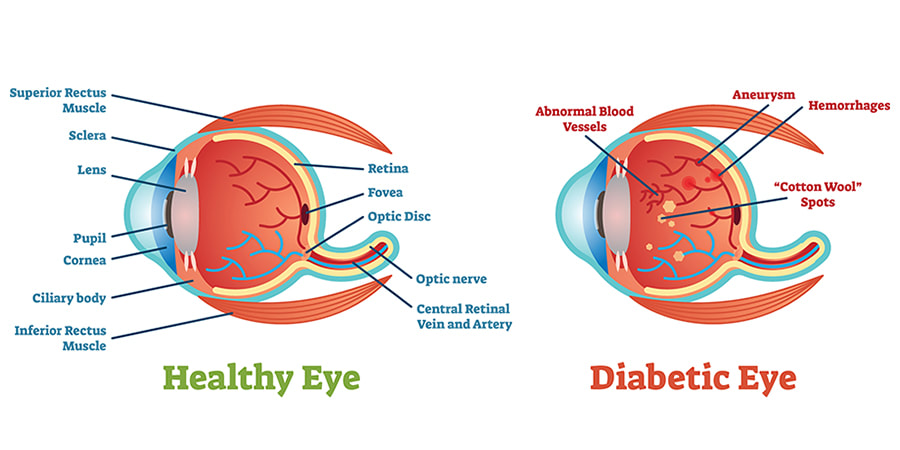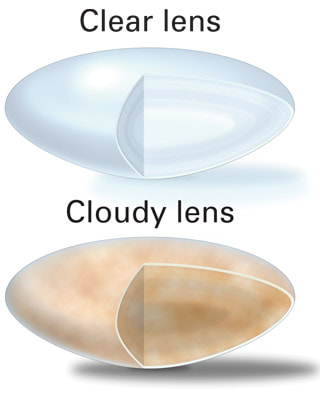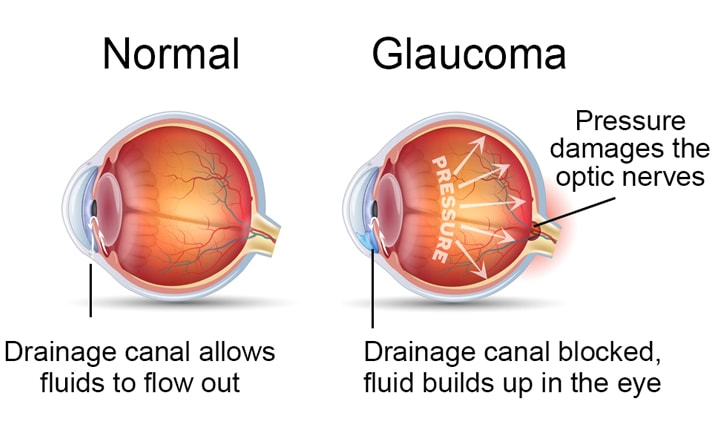The American Academy of Ophthalmology designated November as Diabetic Eye Disease month to “encourage those with diabetes to take proactive steps” and defend themselves against diabetes-related vision loss.
The AAO states diabetes is “a disease that affects the body’s ability to produce or use insulin effectively to control blood sugar (glucose) levels.” Even though glucose is an important energy source for the body’s cells, too much glucose in blood for a prolonged time can damage many parts of the body, including the small blood vessels in the eyes and the heart.
How does diabetes affect my eyes?
High blood sugar (aka blood glucose) can cause swelling in your eye tissues and damage blood vessels in your eyes.
Short term, high blood sugar is not likely to cause vision loss.
- Blurry vision can happen when people change their diabetes care routine or medicines because high blood sugar can change fluid levels or cause swelling in the parts of your eye that helps you focus.
- This kind of blurry vision is temporary, and goes away when glucose levels return to normal.
However, if your blood glucose stays high over time, it can cause lasting damage to the blood vessels in your eye, which has significant consequences.
- Damage can begin during prediabetes (blood sugar is higher than normal, but not high enough to be diagnosed with diabetes)
- Most serious diabetic eye diseases begin with blood vessel problems.
What are Diabetic Eye Diseases?
Diabetic eye disease = “a group of eye problems people with diabetes may face as a complication of diabetes, all of which can lead to blindness if left untreated.” (NIH - National Eye Institute)
Diabetic retinopathy (damage to the blood vessels in the retina)
- High blood sugar can cause blood vessels in the eye’s retina to swell, leak fluid, or close off completely. If new, fragile blood vessels grow, they can also leak blood into the back of the eye and block vision.
- There are often no symptoms until severe damage has already occurred, so it is important to have regular dilated eye exams to detect problems early on.
- Diabetic macular edema (swelling on the retina) is the primary cause of vision loss associated with diabetic retinopathy.
Cataracts (clouding of the lens of the eye)
- The lens in the eye helps focus light onto the retina to produce clear images. However, if the lens becomes cloudy, things look blurry, hazy or less colorful. It can be like looking through a foggy or dusty car windshield.
- Aging is the most common cause of cataracts, but other causes include diabetes and spending a lot of time in the sun without UV protection.
Glaucoma (damage to the optic nerve)
- Fluid in the eye typically empties through a drainage system. However, if fluid does not flow out of the eye properly, pressure can build up in the eye. High pressure damages the optic nerve, which is where visual information travels from the eye to the brain.
- This can lead to irreversible loss of vision.
How to Manage Diabetic Eye Diseases
The National Institute of Health (NIH) suggests the following steps to manage diabetic eye diseases and keep your eyes healthy. The following is a short summary, and for more information, talk to your health care professionals and read the full article.
- Manage your diabetes ABCs.
A for A1C test: The A1C test measures your average blood glucose level over the past 3 months
B for Blood Pressure
C for Cholesterol (you should ask your health care team what your goals should be for these values)
s for Stop Smoking: Smoking and diabetes narrow your blood vessels, which makes your heart work harder. E-cigarettes are not a safe option either.
- Follow your diabetes meal plan. | |
There are often no warning signs of diabetic eye diseases or apparent vision loss when damage first develops. A comprehensive, dilated eye exam helps eye doctors find and treat problems early, which is so important because preventative treatment before extensive damage occurs can be very effective (Diabetic Retinopathy treatment is 95% effective in preventing severe vision loss when detected early!)
Especially for those with diabetes, make sure not to miss your yearly eye exam. Call our office (818-882-9300) to book an appointment with our experienced doctors, we welcome new patients!
https://www.niddk.nih.gov/health-information/diabetes/overview/preventing-problems/diabetic-eye-disease
https://www.aao.org/newsroom/observances
https://www.nei.nih.gov/sites/default/files/nehep-pdfs/DED_SM_Toolkit_Evergreen.pdf
